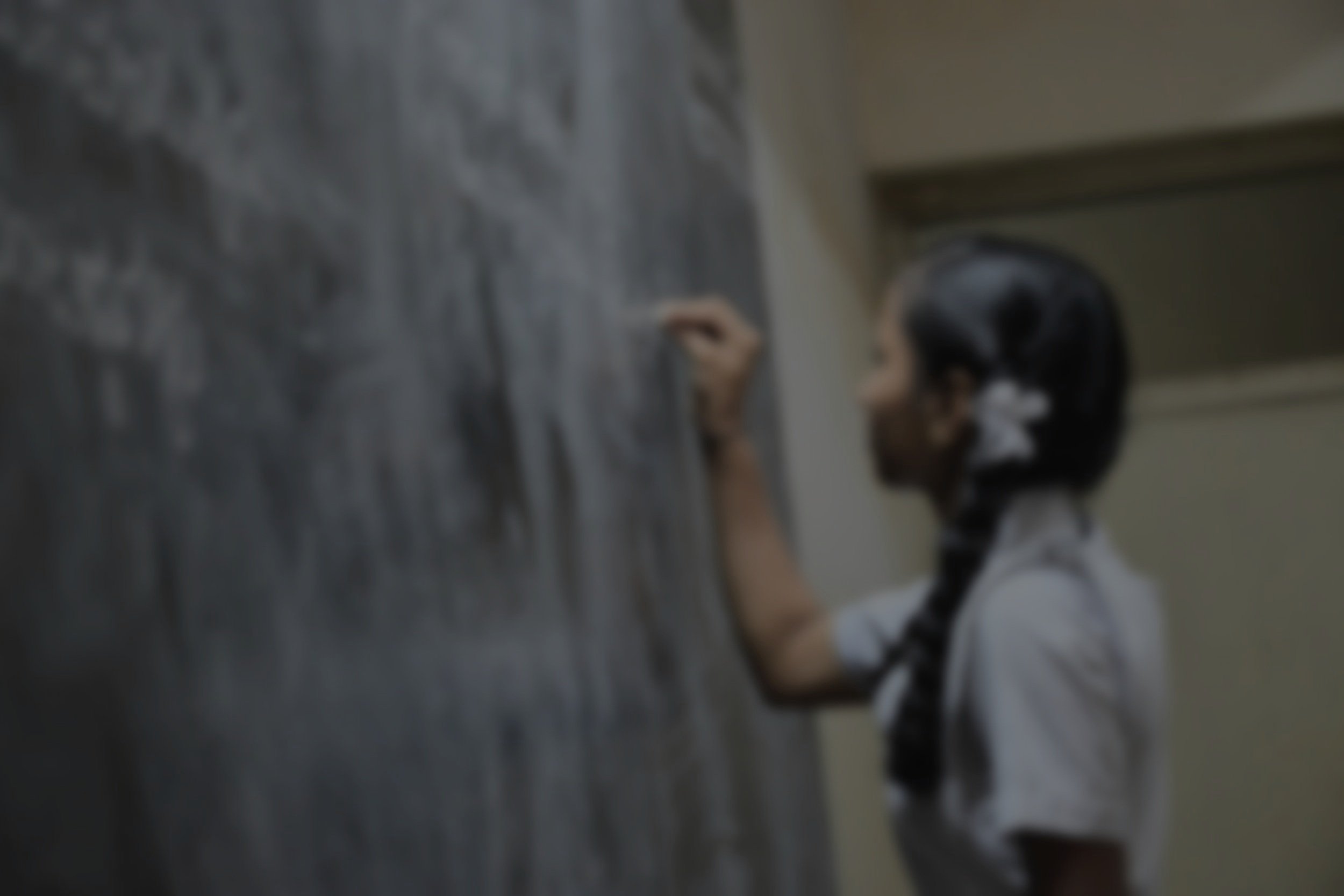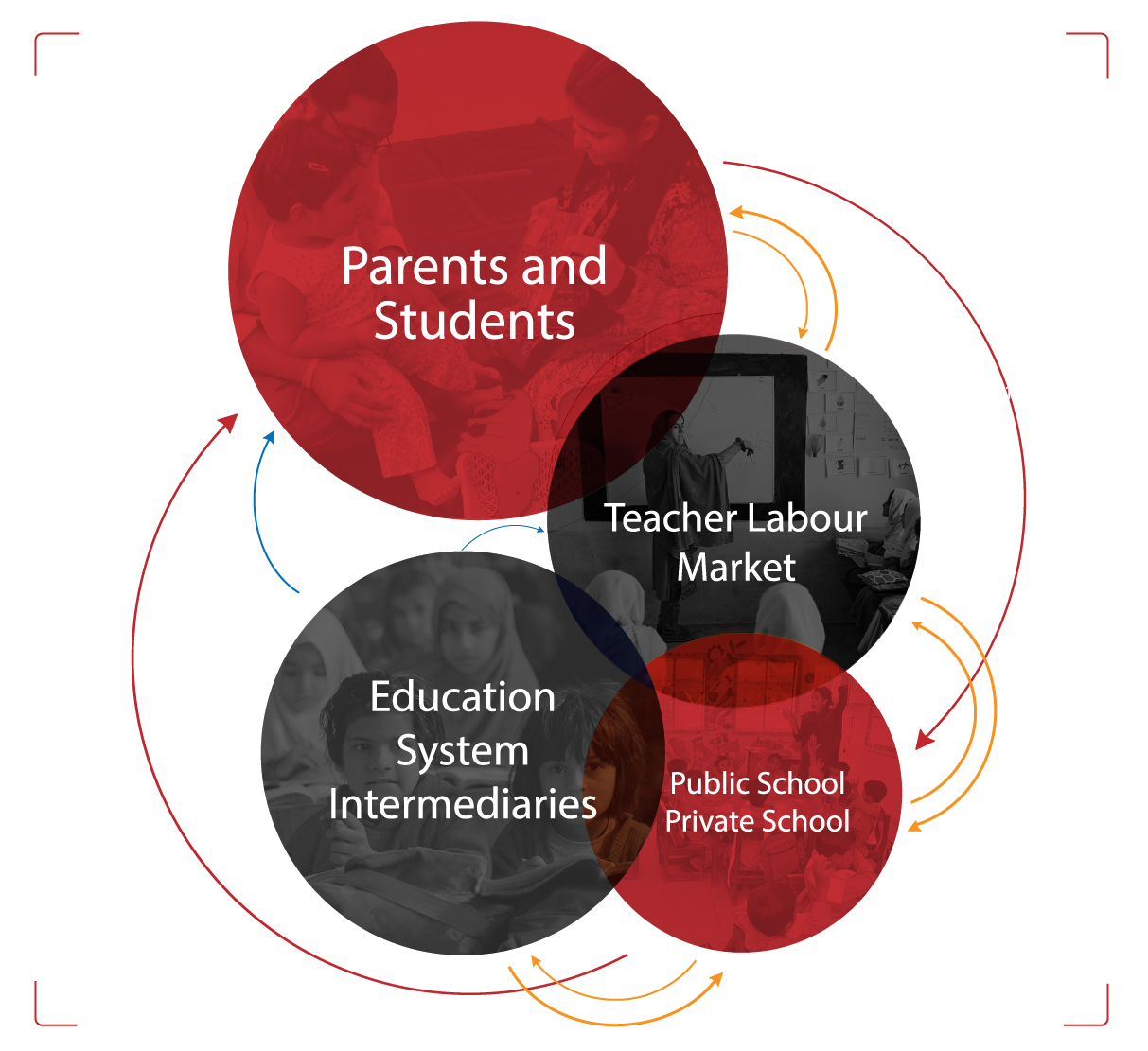
OUR APPROACH
In 2003, a team of researchers led by Tahir Andrabi at Pomona College, Jishnu Das at Georgetown University (formerly the World Bank), and Asim I. Khwaja at the Harvard Kennedy School, embarked on an ambitious research program, “The Learning and Educational Achievement in Pakistan Schools (LEAPS)" project. LEAPS began as a large-scale, independent survey and testing exercise and has since expanded into a long-term engagement and a series of experiments . The LEAPS PIs bring a unique approach to education research by using systems thinking to to examine how to catalyze innovation in education and improvements in learning outcomes.
The Ecosystem
The education ecosystem is made up of a wide set of actors all of whom engage with each other in complex ways. Often, there are systemic frictions that inhibit these actors from engaging in the best possible way to ensure that the whole system thrives. Click the image on the left for a diagram of the complex interactions in Pakistan’s education ecosystem.
The Challenge
Our own decades of research has shown that each community, school, and even child struggles with unique challenges. This means innovations that are successful in one context can fail in others. Instead of specific innovations, we need approaches.
Our Approach
Instead of asking “what specific inputs work to improve education outcomes?”, because those can differ widely by context, we invert the question and ask, “what are the obstacles that are holding schools back from innovating, improving, and growing?”
Understanding the Ecosystem








